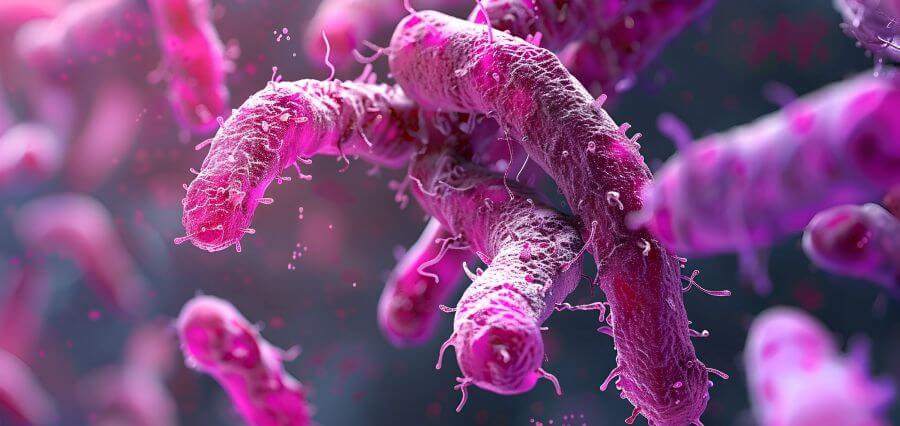Genetics is like a dance, and epigenetics is the conductor behind the scenes, guiding the music of our health and diseases. Instead of sticking to the usual idea of genetic code, epigenetics looks at how outside factors affect our genes, which greatly impacts our overall well-being.
Basics of Epigenetics
DNA Methylation
Epigenetic modifications often start with DNA methylation, a process where methyl groups attach to DNA, altering its activity. This dynamic process can switch genes on or off, impacting various biological functions.
Histone Modification
Histones, proteins supporting DNA structure, undergo modifications that influence gene expression. These modifications act like molecular switches, dictating whether genes are accessible.
Non-Coding RNA
Once dismissed as genetic noise, non-coding RNA molecules are now recognized as influential players in epigenetic regulation. They can silence or amplify gene expression, adding another layer of complexity to our understanding.
Epigenetics and Development
Role in Embryonic Development
During embryogenesis, epigenetic changes guide the formation of distinct cell types. These modifications are crucial for ensuring the proper functioning of cells in different tissues and organs.
Influence on Aging
As we age, our epigenetic landscape undergoes alterations. Understanding these changes may unlock insights into the aging process and age-related diseases.
Epigenetics and Disease
Cancer and Epigenetic Changes
Epigenetic modifications play a pivotal role in cancer development. Aberrant DNA methylation and histone modifications can lead to uncontrolled cell growth, a hallmark of cancer.
Neurological Disorders
Conditions like Alzheimer’s and Parkinson’s are linked to epigenetic changes affecting the expression of genes associated with brain function. Unraveling these connections offers hope for future treatments.
Cardiovascular Diseases
Epigenetics contributes to cardiovascular health by influencing blood pressure and cholesterol levels. Understanding these mechanisms may lead to novel strategies for preventing heart disease.
Environmental Factors and Epigenetics
Impact of Lifestyle Choices
Choices like diet and exercise can modify epigenetic patterns, influencing disease susceptibility. Healthy lifestyle habits can potentially mitigate negative epigenetic effects.
Effects of Environmental Exposures
Exposure to environmental aspects such as pollution or toxins can induce epigenetic changes, highlighting the intricate interplay between our surroundings and genetic expression.
The Interplay of Genetics and Epigenetics
Genetic Predisposition
While genetics lay the foundation, epigenetics can modify genetic predispositions. Understanding this interplay is crucial for comprehending disease susceptibility.
Epigenetic Modifications and Genetic Expression
Epigenetic changes can fine-tune gene expression, providing an additional layer of control over our genetic makeup.
Epigenetics in Personalized Medicine
Tailoring Treatments Based on Epigenetic Profiles
The era of personalized medicine is emerging, with epigenetic profiles guiding treatment plans tailored to an individual’s unique genetic and epigenetic makeup.
Future Possibilities
Ongoing research holds promise for groundbreaking therapies, using epigenetic insights to target diseases at their roots.
Challenges and Ethical Considerations
Ethical Implications of Epigenetic Research
As the field advances, ethical questions arise regarding the use of epigenetic information. Striking a balance between scientific progress and ethical considerations is imperative.
Ensuring Privacy in Epigenetic Data
Protecting individuals’ privacy becomes paramount as epigenetic data gains importance in medical research. Robust safeguards are essential to prevent misuse.
Epigenetics and Public Awareness
Importance of Educating the Public
Enhancing public awareness is crucial to fostering understanding and acceptance of epigenetics. Education can bridge the gap between scientific advancements and public perception.
Bridging the Gap Between Science and Society
Efforts to communicate complex scientific concepts in an accessible manner can facilitate dialogue and create a more informed and engaged society.
Research Breakthroughs
Recent Discoveries in Epigenetics
From CRISPR-based epigenome editing to identifying novel epigenetic markers, recent breakthroughs underscore the dynamic nature of epigenetic research.
Potential Impact on Medicine
The integration of epigenetics into medical practice holds immense potential, from early disease detection to innovative treatment strategies.
Epigenetics and Lifestyle Changes
How Diet Affects Epigenetic Patterns
Dietary choices can influence epigenetic modifications, emphasizing the importance of a balanced and nutritious diet for overall health.
Exercise and Its Influence on Epigenetics
Regular physical activity has been correlated to positive epigenetic changes, showcasing the profound impact of lifestyle choices on our genetic expression.
The Future of Epigenetics
Advancements in Epigenetic Therapies
As we unlock more mysteries of the epigenome, the development of targeted epigenetic therapies could revolutionize the treatment of various diseases.
Long-Term Implications for Healthcare
A future where healthcare is tailored to individual epigenetic profiles could usher in a new era of precision medicine, transforming how we approach health and wellness.
Conclusion
In the intricate dance of genetics, epigenetics emerges as a choreographer, shaping our health and influencing the onset of diseases. As research progresses, our understanding of epigenetics’ impact.





